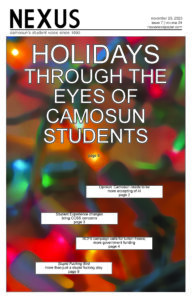While being one of the biggest challenges for educators in decades, artificial intelligence also provides us with a unique opportunity to enhance the quality of our education. Just as we did with the emergence of computers and then the internet, Camosun College and educators in general are taking a close-minded approach to the adoption of AI in the classroom. We now have a unique opportunity not seen since the widespread adoption of computers to personalize education to help each student close the skill gap at Camosun.

Educators and institutions have been struggling to find an answer to the question of how to handle the rapid rise of AI and how to integrate it into their courses, if at all. There’s no denying that many questions need to be answered before AI becomes a part of our learning experience, including how to tackle the genuine risks of technological dependency, depersonalization, and memory weakening. But we have a tremendous opportunity to improve the learning environment for all students.
Using AI tools in the classroom will improve learning for all students, particularly those with learning disabilities, by matching the study material to the skill level of each student. This will allow students to learn at their own pace and complete assignments in the easiest way for them, and to produce their best work. These tools can also help students strengthen their weak areas of study and advance further in the areas in which they succeed, even analyzing a student’s work and giving feedback in real time on how they can improve their work based on their strengths and weaknesses. Additionally, AI will give all students access to quality educational resources regardless of their economic or social background, closing the skill gap and making education more accessible for more students at Camosun.
As students, we know that there is nothing more frustrating than asking your instructor something only to wait hours—perhaps even days—for an answer. Instructors are busy people and are often swamped with questions daily. AI tools can help lighten their load and help students find answers to the most commonly asked questions within seconds, even using conversational English, making students feel like they are having a conversation with their instructors. This gives educators much-needed free time, allowing them to improve their courses and giving them well-needed rest, improving their ability to do their jobs effectively. Additionally, AI tools allow students to learn at their own pace, anywhere, anytime, without having to wait for their peers and educators.
Yes, artificial intelligence presents great risks to the future of education. But, it also presents the opportunity for a great reward: monumental improvements in education. Over the next few years, educational institutions around the world will begin to figure out how to integrate artificial intelligence tools into the classroom, and Camosun should ensure that its students are not left behind.
